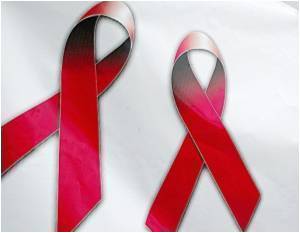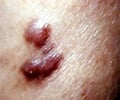Commonwealth countries must work towards repealing homophobic laws at the leaders' summit this week.

These include statues, mostly enacted in colonial times, which criminalise homosexual sex.
"It's just a dear little legacy of the British Empire," Michael Kirby, a retired High Court judge and Australia's representative on the Eminent Persons Group, said ahead of the Commonwealth Heads of Government Meeting (CHOGM).
"It's a very special British problem.
"And the problem is it makes it very difficult to get messages about HIV out," he said in comments broadcast on the ABC.
About 2.7 million new people become infected with HIV every year, with the virus claiming a further two million lives annually from AIDS.
Advertisement
Kirby noted that reforms would face cultural and religious obstacles among members of the Commonwealth, which comprises mainly former British colonies stretching from Canada to Cameroon and from New Zealand to Nigeria.
Advertisement
Without a vaccine or a cure for HIV, many believe prevention is still the best method of attack against the virus which has infected more than 30 million people worldwide.
Rob Lake, the executive director of the Australian Federation of AIDS Organisations, said with so much now known about HIV, it should be clear how to prevent it, but this could not happen if people cannot live freely.
He said while not every Commonwealth country actively prosecuted homophobic laws, they created an environment in which people were fearful about seeking advice or help.
"When people are forced to hide, or cover who they are and what they do... they are not the people who get the messages about prevention, get the messages about treatment," he told AFP.
"And that's one of the factors in these high rates in Commonwealth countries."
Lake said the laws needed to be repealed to help reduce infection rates and while the situation in some countries was improving, there were other nations which were heading in the other direction.
He noted the case of two men charged with sodomy in Malawi, who were sentenced to 14 years in jail. They were pardoned by President Bingu wa Mutharika after UN Secretary General Ban Ki-moon intervened.
And in May fellow CHOGM state Uganda shelved an anti-gay bill that would have imposed the death penalty for certain homosexual acts, notably if one partner in consensual gay sex had the HIV virus.
The CHOGM talks, to be opened by Britain's Queen Elizabeth II on Friday, will also debate whether the body should adopt a charter of common values, and create the office of commissioner for democracy, rule of law and human rights.
Kirby said it was important that the Eminent Persons Group's report was accepted in its substance at the Commonwealth summit.
"It is a really critical watershed for the Commonwealth," he said.
Source-AFP









